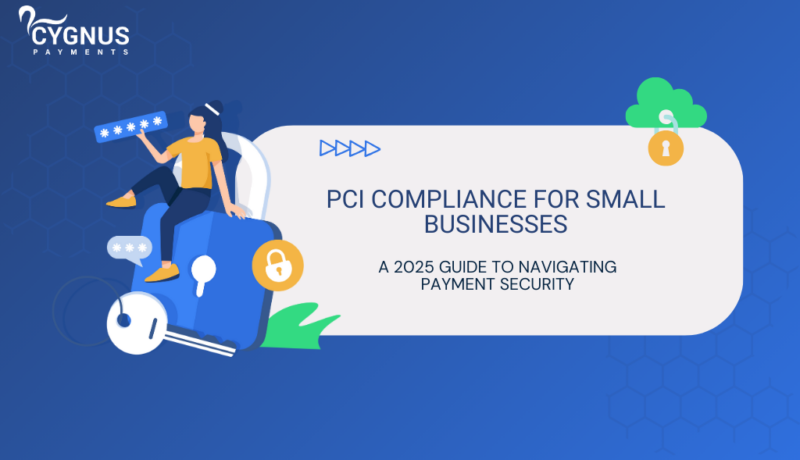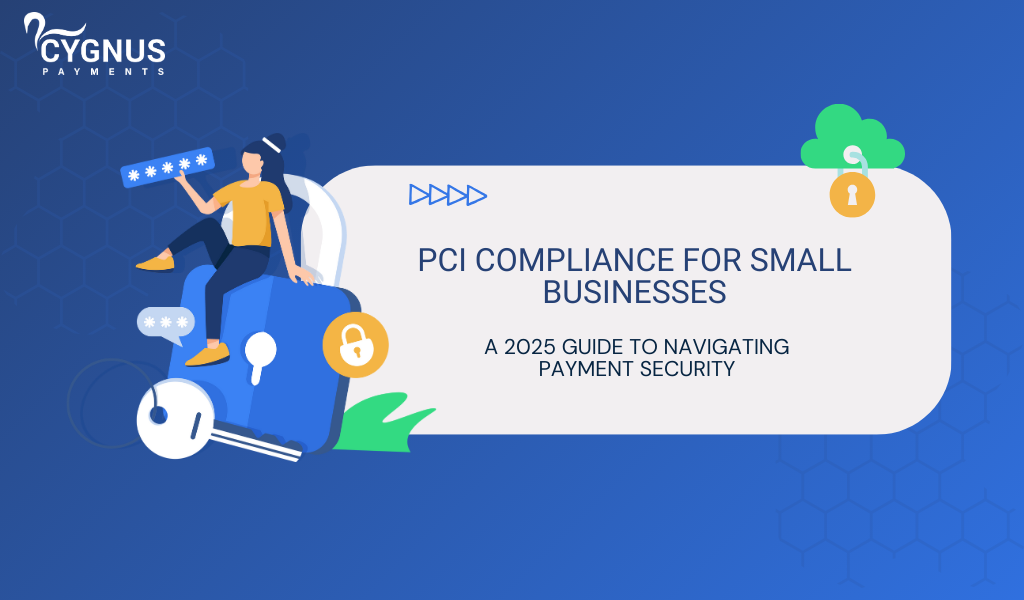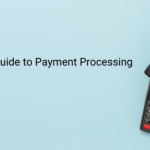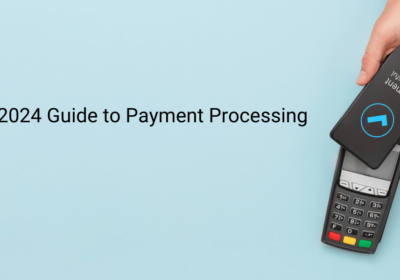
PCI Compliance for Small Businesses: A 2025 Guide to Navigating Payment Security

For small businesses, ensuring the security of customer payment information is crucial. With cybercrime on the rise, failing to comply with the Payment Card Industry Data Security Standard (PCI DSS) can result in severe penalties, data breaches, and loss of customer trust. But what exactly is PCI compliance, and why should small business owners care about it?
Table Of Content
- Table of Contents
- 1. What is PCI Compliance?
- 2. Why is PCI Compliance Important for Small Businesses?
- 3. How Does PCI Compliance Work?
- 4. What Are the Different PCI Compliance Levels?
- 5. Steps for Small Businesses to Achieve PCI Compliance
- 6. How Much Does PCI Compliance Cost?
- 7. What Are the Risks of Non-Compliance?
- 8. How to Maintain PCI Compliance
- 9. Common PCI Compliance Challenges for Small Businesses
- 10. Frequently Asked Questions About PCI Compliance
- 11. How to Simplify PCI Compliance with Cygnus Payments
Whether you’re a seasoned entrepreneur or a curious consumer, understanding payment processing is crucial for navigating the ever-evolving financial landscape. This guide will be your decoder ring, unraveling the mysteries of online payment processing services and turning you into a payment processing pro.
In this guide, we will answer the most common questions about PCI compliance for small businesses, explaining everything in a simple, straightforward way.
Table of Contents
1. What is PCI Compliance?
PCI compliance refers to a set of security standards created by the Payment Card Industry Security Standards Council (PCI SSC) to protect cardholder data during and after financial transactions. Whether you’re processing payments online, in-store, or through mobile devices, PCI compliance ensures that you follow best practices for securing sensitive payment information, such as credit card numbers. The PCI DSS includes 12 essential requirements that apply to all businesses that store, process, or transmit cardholder data, ensuring the protection of payment information across networks.
2. Why is PCI Compliance Important for Small Businesses?
Small businesses are often targets for cybercriminals due to perceived vulnerabilities in their security systems. A data breach can cost a business significantly, not only in terms of fines but also in reputational damage. According to a 2022 survey, 60% of small businesses that experience a data breach close within six months. PCI compliance helps reduce the risk of such breaches by ensuring that businesses implement stringent security measures to safeguard customer data. Compliance is not only a legal requirement for processing payments but also a key to building trust with your customers.
3. How Does PCI Compliance Work?
PCI compliance is designed to ensure that businesses follow specific security protocols. The compliance process involves:
Each merchant is assigned a PCI compliance level based on their transaction volume, which determines the steps they must take to validate compliance.
- Assessing your business’s current data security measures.
- Fixing vulnerabilities to ensure that systems are compliant with PCI standards.
- Reporting compliance to the acquiring bank or payment processor.
- Choosing a Payment Processor: Research different options and compare processing fees.
- Security is Key: Ensure the processor offers robust security measures to protect your customer data.
- Finding the Right Fit: Consider your business needs. Do you need a processor that specializes in credit card processing or something more versatile?
4. What Are the Different PCI Compliance Levels?
The PCI DSS outlines four compliance levels, determined by the number of card transactions processed annually:
- Level 1: Over 6 million transactions annually.
- Level 2: Between 1 and 6 million transactions annually.
- Level 3: Between 20,000 and 1 million eCommerce transactions annually.
- Level 4: Less than 20,000 eCommerce transactions or fewer than 1 million transactions in total annually.
For small businesses, most will fall under Level 3 or Level 4, requiring less intensive validation but still essential security practices. You may need to fill out a Self-Assessment Questionnaire (SAQ) and perform regular vulnerability scans as part of your compliance efforts.
5. Steps for Small Businesses to Achieve PCI Compliance
Achieving PCI compliance might seem daunting, but following these key steps will help you stay on track:
- Understand the PCI DSS Requirements: Start by familiarizing yourself with the 12 requirements of PCI DSS. These cover everything from installing firewalls to encrypting cardholder data and maintaining an information security policy.
- Fill Out the Self-Assessment Questionnaire (SAQ): This questionnaire helps small businesses assess whether they meet PCI standards. Depending on your business type and the way you process payments, the SAQ may vary.
- Complete a Vulnerability Scan: Businesses with external-facing IP addresses (e.g., online stores) need to perform regular network scans to ensure there are no security holes.
- Remediate Issues: Fix any security vulnerabilities found during your self-assessment or vulnerability scan to meet PCI DSS requirements
- Submit Compliance Validation: Once compliant, submit your SAQ and any necessary reports to your acquiring bank or payment processor.
6. How Much Does PCI Compliance Cost?
For small businesses, PCI compliance costs vary depending on factors like the size of your business and how you handle payment processing. Generally, costs can include:
- Annual compliance fees: Typically range from $20 to $150 annually, depending on your payment processor.
- Vulnerability scanning costs: Usually around $100 to $500 annually for businesses that require regular scans.
- Fines for non-compliance: These can be severe, ranging from $5,000 to $100,000 per month until compliance is achieved.
Some processors, like Cygnus Payments, offer PCI compliance as part of their service package, which can help reduce these costs.
7. What Are the Risks of Non-Compliance?
Non-compliance with PCI DSS can have serious consequences, including:
- Fines and penalties: Payment processors can impose significant fines for non-compliance.
- Increased risk of data breaches: Without compliance, your business is more vulnerable to cyberattacks, which can lead to stolen cardholder data.
- Loss of trust and reputation: A data breach can damage customer trust, which is difficult to regain, especially for small businesses.
Moreover, non-compliance could result in your business losing the ability to process card payments, which could severely impact your sales.
8. How to Maintain PCI Compliance
Once you’ve achieved PCI compliance, it’s important to maintain it by:
- Regularly reviewing your systems: Make sure to check your security controls frequently and update them as necessary.
- Performing quarterly scans: If your business requires it, conduct regular scans of your systems to detect vulnerabilities.
- Training your staff: Ensure that all employees handling sensitive data are trained on security protocols and understand the importance of protecting cardholder data.
PCI compliance is not a one-time task but an ongoing process of maintaining security best practices.
9. Common PCI Compliance Challenges for Small Businesses
Small businesses often face specific challenges when it comes to PCI compliance, including:
- Lack of IT expertise: Many small business owners aren’t security experts and may struggle to implement the technical requirements of PCI DSS.
- Limited resources: Smaller budgets and fewer staff members can make it difficult to manage and maintain compliance.
- Misunderstanding of requirements: PCI DSS can be complex, and many small businesses don’t fully understand the steps they need to take.
Fortunately, many payment processors, including Cygnus Payments, offer solutions that simplify compliance.
10. Frequently Asked Questions About PCI Compliance
Q1: Do all small businesses need to be PCI compliant?
Yes, all businesses that accept credit card payments, regardless of size, must comply with PCI DSS.
Q2: How often do I need to validate my PCI compliance?
Validation is typically required annually. However, vulnerability scans may need to be performed quarterly depending on your business setup.
Q3: What happens if my business experiences a data breach?
If you’re PCI compliant, your liability for the breach may be limited. However, non-compliance can result in severe fines and increased liability.
Q4: Do I need to hire a professional to achieve PCI compliance?
While some businesses hire Qualified Security Assessors (QSAs) to assist with PCI compliance, many small businesses can complete the process independently using the SAQ.
Q5: Is PCI compliance the same as data privacy laws like GDPR?
No, PCI compliance focuses on protecting cardholder data, while GDPR and similar laws deal with broader personal data protection.
Q6: Can I avoid PCI compliance by only accepting cash payments?
Yes, businesses that do not accept credit or debit card payments are not subject to PCI DSS. However, for most businesses, offering card payments is essential to meet customer demand.
11. How to Simplify PCI Compliance with Cygnus Payments
PCI compliance can seem like a maze of technical jargon, regulations, and requirements. But here’s the good news—you don’t have to go at it alone! With Cygnus Payments, we make PCI compliance hassle-free. Our services automatically integrate security features that help you meet PCI DSS requirements, so you can focus on running your business, not stressing over compliance.
Still feeling overwhelmed? Let Cygnus Payments handle the details while you enjoy the peace of mind that comes with knowing your customers’ data is safe and sound. Why wrestle with PCI forms when we can make compliance as easy as swiping a card?




